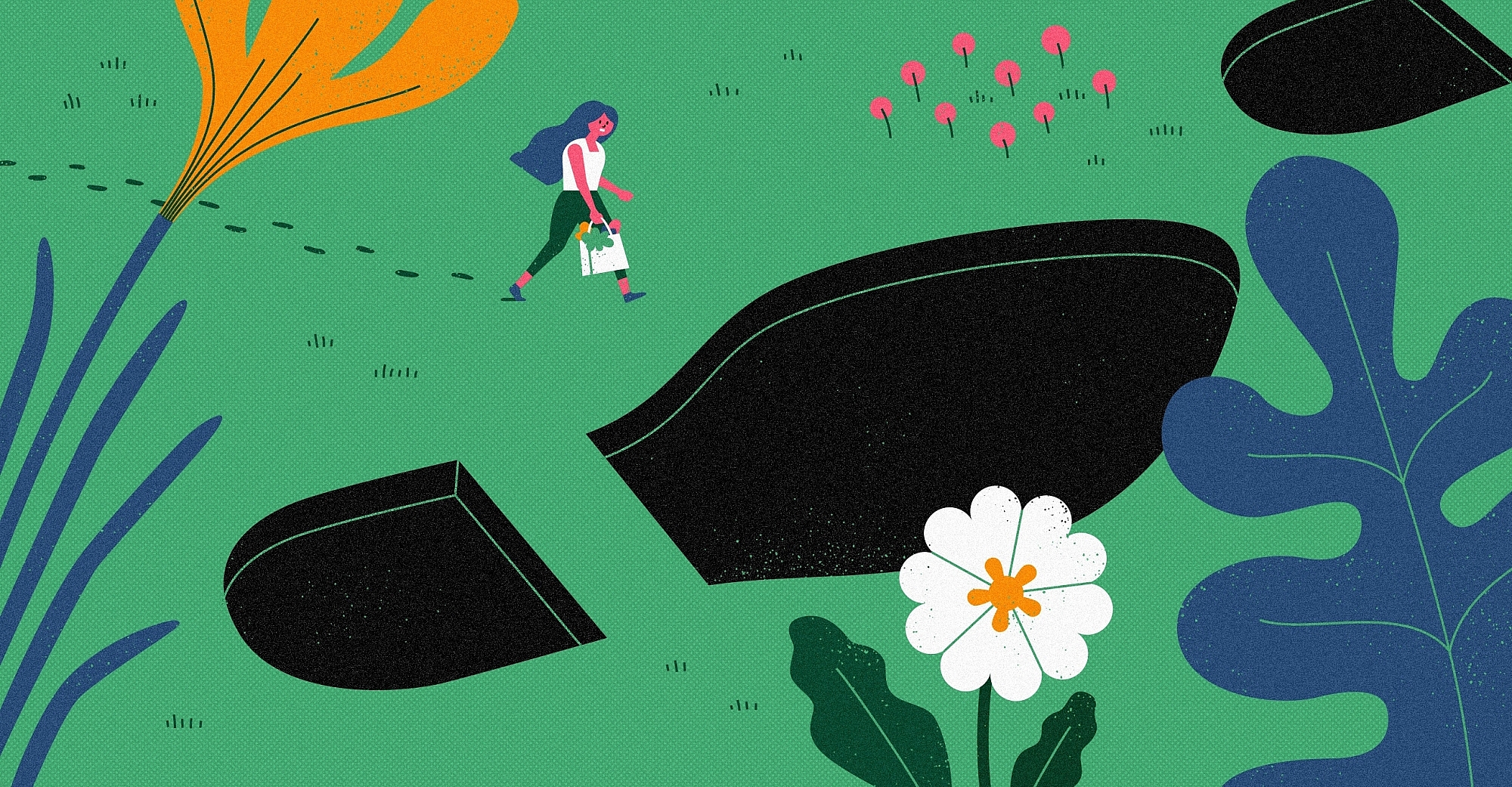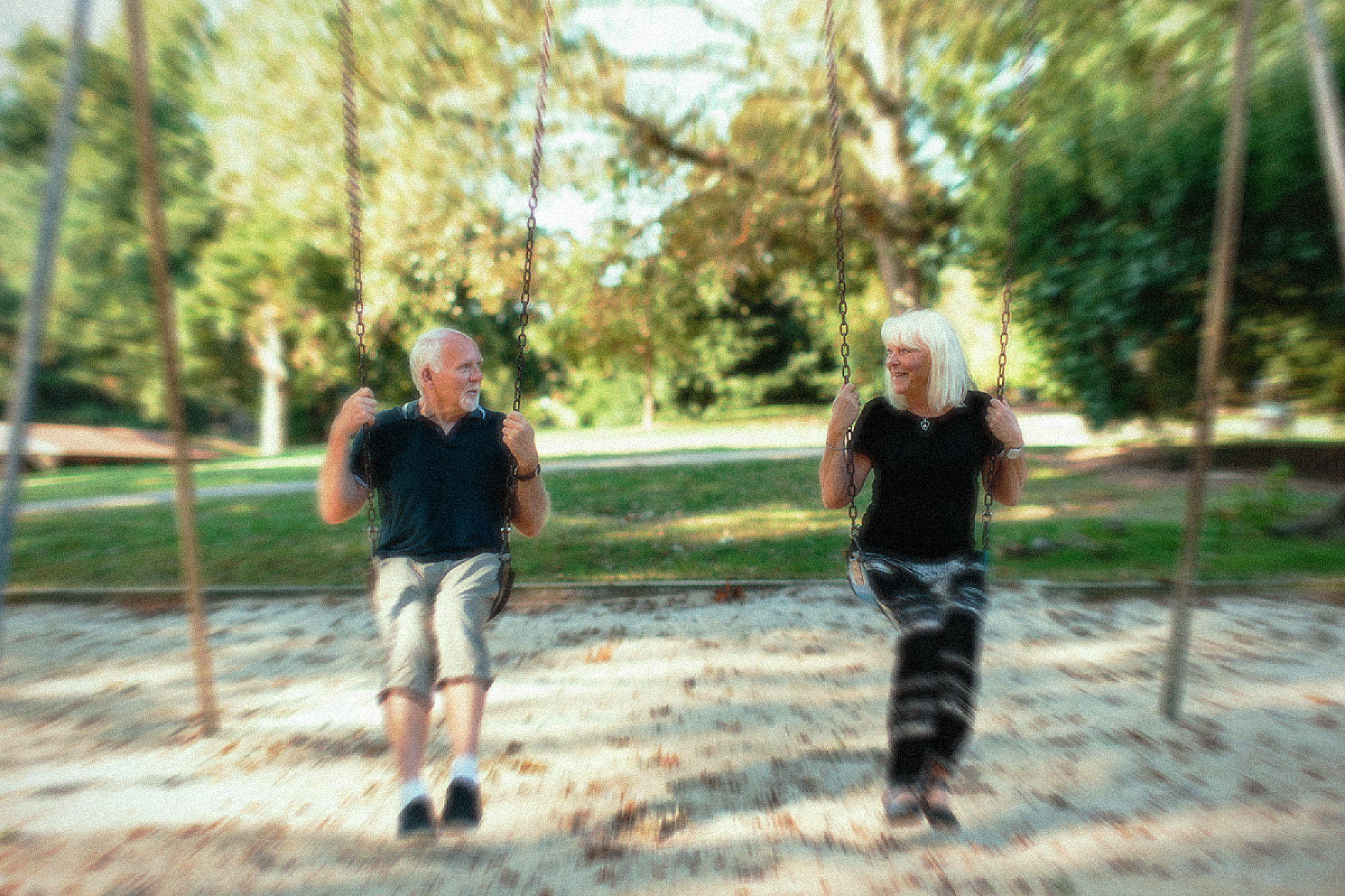Climate-related disasters and other devastating phenomena are occurring at an ever-increasing rate. At the same time, Gen Z is ramping up their sustainability efforts and becoming the most outspoken generation when it comes to environmentalism.
The reason: Gen Z feels governments, institutions and corporations have been frustratingly slow to respond, and instead, feels the need to take up the mantle themselves. In fact, 72 percent of Gen Zers report making purchasing decisions based on their personal, social and environmental values and principles.
So we wanted to know, what does this dedication look like in practice and how can brands win over Gen Z’s trust and loyalty? We spoke to Gen Zers at Day One Agency to get their takes:




What inspired you to care about environmentalism and sustainability in the first place?
John: Moving to New York City and just witnessing the volume of waste generated everyday lead me to take small steps in reducing my personal footprint.
Grace: My mom has been a vegetarian my whole life and always cared a lot about nature and the environment, so it was instilled in me young. There is also so much impending doom with the climate crisis, and I want to see my friends and family have families and grow beyond just this generation.
Sinead: I can't really pinpoint an exact moment that I started to think about environmentalism and sustainability, but I took an environmental law class in college and my final paper was about the fashion industry, and all the research I did has stuck with me since. And I agree with John – being in such a big city (and also having a small apartment) has really changed how I think about how much junk I accumulate.
Izzi: I don't necessarily think that any one specific thing inspired me to care about the environment. Living on earth in 2024, I see the world in its current state of disrepair and can't help but be concerned.
How would you describe your approach to sustainable living?
Grace: I try to always buy secondhand clothes, I don't eat meat, and I invest in higher quality items that I see myself using for a considerable amount of time.
Modest, minimal living. It's nearly impossible to live at the level of sustainability that I'd like to eventually achieve while still living in NY, but I've found the best approach while here is to first and foremost buy less.
- John Portis, Senior Designer
Sinead: I'd be the first to admit that I'm not very good at this (it's a work in progress), but for me it's trying to make better choices on a day to day basis—mostly buying used, upcycling, and being mindful about whether or not I need the things I’m buying.
Izzi: Sustainability concerns are a product of capitalism and something that must be solved at a governmental level, rather than the responsibility of the single consumer, so advocating for policies and reforms that address climate change is the most useful thing I can do in my own life.
When it comes time to buy something new, do your values about sustainability influence your purchasing decisions? If so, how?
Grace: Yes. There are so many items already in the world at this point and a lot of them are in good condition. I utilize eBay, Depop, Facebook Marketplace, and thrift stores in NYC to buy clothes and items for my house. I try to purchase things I know I will use for a while. If I do purchase new clothes, I try to go for brands like Reformation and Girlfriend Collective that have sustainable practices.
Sinead: My top priority when buying something new is finding something that will last me a while (or that I anticipate liking for a while). I'm definitely curious about different brands' sustainability practices and I like buying from brands with greater transparency. But I’m also super skeptical about the greenwashing of it all.
I try to avoid impulsive purchases and buying things that do not actually improve my life in a tangible way. When I do buy new things, I attempt to buy second hand, local, and non-mass produced products.
- Izzi Sneider, Associate Creative Strategist
John: Again, it’s nearly impossible to live 100% within my goals but my sustainability values coincide with my fashion and home living preferences. I like used things. But the things I do splurge on tend to be less mass produced and in some cases made by hand. Or at least that’s the ideal scenario.
Understanding you may not be able to pay attention to sustainability in every area of your spending, which categories do you prioritize (fashion, food, transportation, health/beauty, home goods)?
Grace: Fashion and food. But also, because we all rely on the subway in New York, transportation isn't on my mind as much as it would be somewhere like LA. It's hard because there is so much waste in New York compared to other places, but it is nice that a lot of the population doesn't use cars daily.
John: It's true I have a lot less guilt not owning a car. And I agree, mostly fashion and home decor items but I do make small sustainable everyday choices—like biking to the grocery store with reusable bags, buying mostly unbagged produce and composting all food waste.
Sinead: Definitely fashion—but I also think that's where my most unsustainable habits are/were.
Izzi: I prioritize making mindful decisions when it comes to fashion and home goods, but again I think focusing on the root causes of climate change and overconsumption is the most important thing, which for me means advocating for policy change.
What sustainable efforts have you seen that you like? What brands do you find exciting in the space?
John: I'd like to see more stores like Precycle and more farmers markets. “My health forward” is a great account on TikTok where you can get pertinent information on sustainability and where to source directly from farms. Even in NY.
I found a woman with a small brand on instagram through my friend (@ellerali) who upcycles tshirts. I got in touch with her and mailed her a bunch of free t-shirts I've collected over the years and she made me a much cooler t-shirt from them that I actually wear.
- Sinead Chang, Creative Strategist
Izzi: In general, I don't look to corporations to solve the problem of sustainability, but I think the trend of brands incorporating secondhand into their business models is a step in the right direction.
Grace: I agree with Izzi. I've been seeing brands add a recycling function into their model and think that is a cool shift. I also think Nuuly and the clothing rental companies are a really fun way to be sustainable if you love fashion but don't fall into the "thrift" aesthetic.
What big questions or concerns do you still have about sustainability? How would you want brands to help solve them?
Sinead: I just feel like anything I do is such a small drop in the bucket, the sustainability practices that I've incorporated into my life (mostly, consuming more mindfully) have also been beneficial to my life in other ways so I will continue, but how much of an impact can I really have? [For brands,] I do think cost is a barrier for people to start to make better environmental choices.
Grace: I hope that someone in a position of higher power can step up to lead this conversation. One of the biggest problems with all of this is there is no solidifying voice of reason in government and people don't know what to do. The further we go down the path of confusion, no change will happen.
And going off Izzi and Sinead, we can only do so much as individual people. There has to be policy change.
John: I think when you don’t live in or near a big city like NY, where you're confronted with the sheer weight of our impact and when climate change is still a controversial subject to teach in many schools, there’s a level of separation and confusion that makes it easier to remain oblivious and stagnant. Like Izzi has been saying there are many policy changes that need to happen but also each individual has a responsibility to educate the next gen on sustainability.
What would you say to brands who are considering investing in the area of sustainability in their business in 2024 when it comes to influence with Gen Z?
I feel like brands often want their sustainability ventures to be a flashy, huge campaign and we just need everyday environmentally focused products. I am more likely to purchase from a brand that has a consistent dedication to sustainable practice, rather than a brand that does one jazzy campaign.
- Grace Antino, Creative Producer
Sinead: Actions speak louder than words!
John: Was about to say that. Proof.




